Welcome to the world of Montessori playrooms, where learning and growth go hand in hand with fun and independence. Montessori education is a renowned educational philosophy that emphasizes self-directed activity, hands-on learning, and collaborative play.
In Montessori playrooms, children are encouraged to explore, discover, and learn at their own pace, fostering a lifelong love of learning. These carefully designed spaces are filled with a wide range of educational materials that invite children to engage with them independently.
From puzzles and blocks to sensory bins and art supplies, every item has a purpose and an opportunity for learning. With an emphasis on self-correction, Montessori playrooms empower children to make decisions, solve problems, and develop essential skills such as concentration, coordination, and critical thinking.

In this article, we will delve into the principles and benefits of Montessori playrooms, guiding you through an inspiring journey towards encouraging independent learning and growth in your child. Join us as we explore how these playrooms can nurture creativity, develop practical life skills, and cultivate a love for learning that lasts a lifetime.
What is a Montessori Playroom?
A Montessori playroom is a carefully designed space that encourages children to learn through self-directed play and exploration. These playrooms are filled with educational materials that are designed to promote creativity, problem-solving, and critical thinking skills.
In a Montessori playroom, children are given the freedom to work independently or collaboratively, choosing activities that interest them and working at their own pace.
The Montessori approach to playroom design is based on the belief that children learn best when they are given the opportunity to explore and discover on their own. These playrooms are designed to be calm, organized spaces that promote concentration and focus. They are also designed to be safe and inviting, with materials that are carefully chosen to suit the developmental needs of each child.
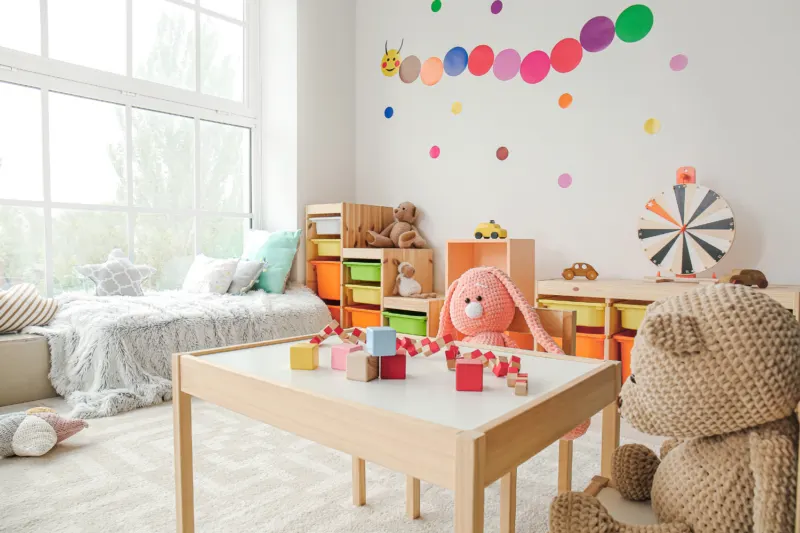
Benefits of Montessori Playrooms for Children
Montessori playrooms offer a wide range of benefits for children. These playrooms are designed to promote creativity, problem-solving, and critical thinking skills.
They also help children to develop practical life skills such as cooking and cleaning. Here are some of the key benefits of Montessori playrooms:
Promotes Independence and Self-Direction
Montessori playrooms are designed to promote independence and self-direction in children. Children are encouraged to choose their own activities and work at their own pace. This helps children to develop a sense of responsibility and self-confidence.
Fosters a Love of Learning
Montessori playrooms are designed to be engaging and fun. Children are encouraged to explore and discover new things, fostering a lifelong love of learning.
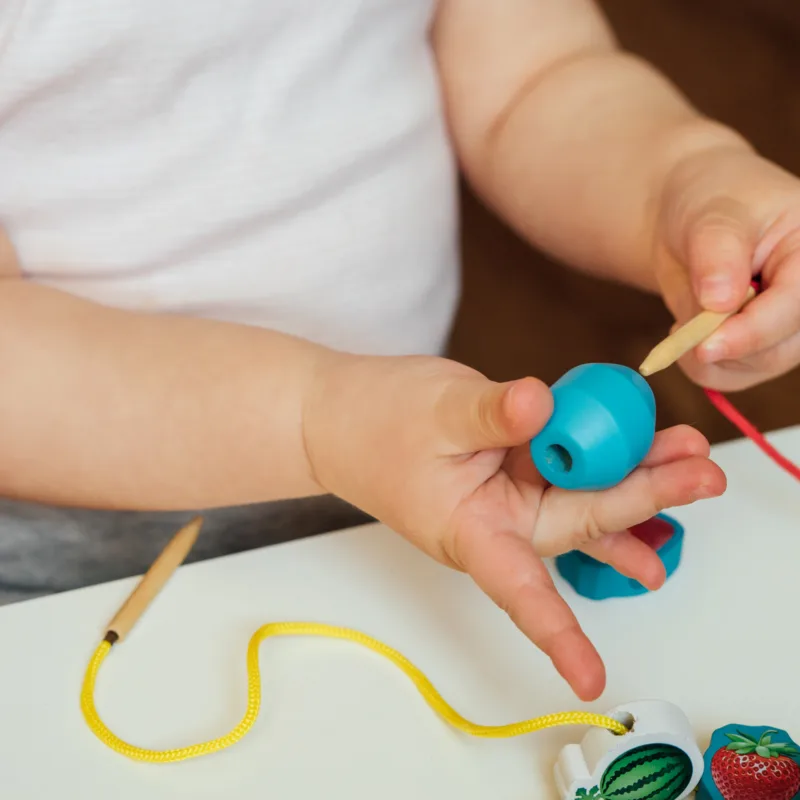
Develops Problem-Solving and Critical Thinking Skills
Montessori playrooms are filled with educational materials that promote problem-solving and critical thinking skills. Children are encouraged to use their imaginations and come up with creative solutions to problems.
Promotes Practical Life Skills
Montessori playrooms incorporate practical life skills such as cooking, cleaning, and caring for oneself and others. These skills help children to become independent, capable individuals who are prepared for the challenges of adult life.
Encourages Socialization and Collaboration
Montessori playrooms encourage socialization and collaboration among children. Children are encouraged to work together on activities and to help each other when needed.
Setting Up a Montessori Playroom
Setting up a Montessori playroom requires careful planning and consideration. The playroom should be designed to promote independence, creativity, and problem-solving skills. Here are some tips for setting up a Montessori playroom:
Choose a Quiet, Calm Space
The playroom should be located in a quiet, calm space that is free from distractions. This will help children to concentrate and focus on their activities.
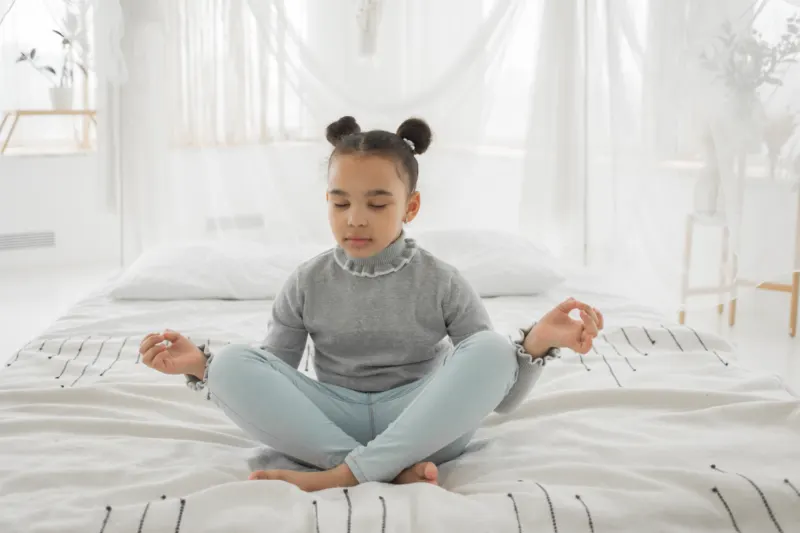
Invest in High-Quality Materials
Invest in high-quality materials and furniture that are designed to promote creativity, problem-solving, and critical thinking skills. Choose materials that are safe, durable, and age-appropriate.
Organize Materials by Category
Organize materials by category, such as puzzles, blocks, and art supplies. This will make it easier for children to find the materials they need and to work independently.
Provide a Variety of Materials
Provide a variety of materials that promote different skills and interests. This will keep children engaged and interested in the playroom.
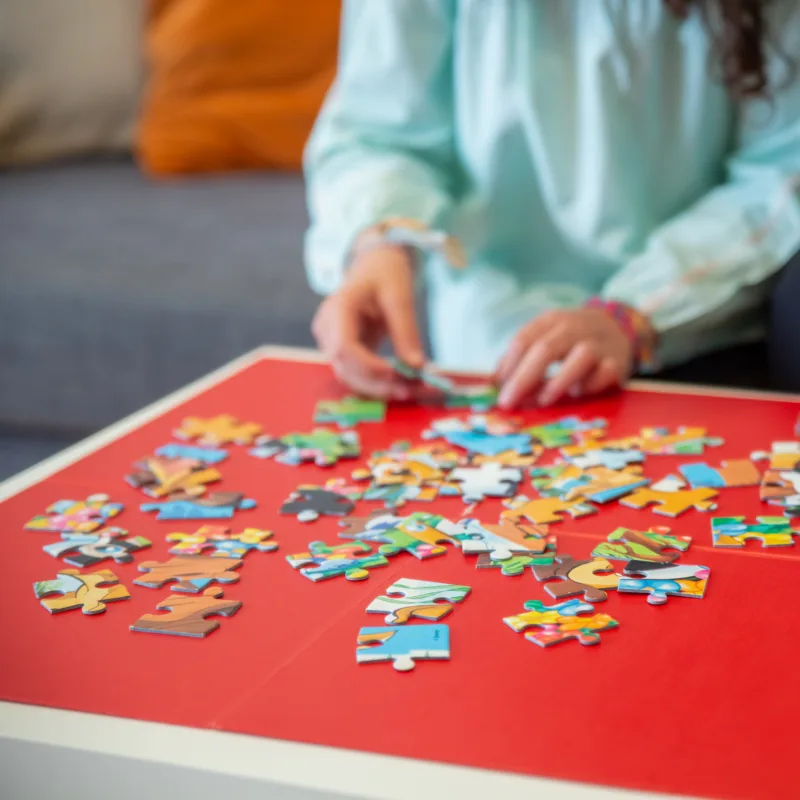
Essential Materials for a Montessori Playroom
Montessori playrooms are filled with educational materials that promote creativity, problem-solving, and critical thinking skills. Here are some essential materials for a Montessori playroom:
Puzzles
Puzzles help children to develop problem-solving and critical thinking skills. Choose puzzles that are age-appropriate and that promote different skills, such as spatial reasoning and pattern recognition.
Blocks
Blocks help children to develop creativity and spatial reasoning skills. Choose blocks that are age-appropriate and that promote different skills, such as stacking and building.
Sensory Bins
Sensory bins help children to develop sensory skills and to explore different textures and materials. Choose sensory bins that are age-appropriate and that promote different skills, such as pouring and scooping.
Art Supplies
Art supplies help children to develop creativity and fine motor skills. Choose age-appropriate supplies, such as crayons, markers, and paints.
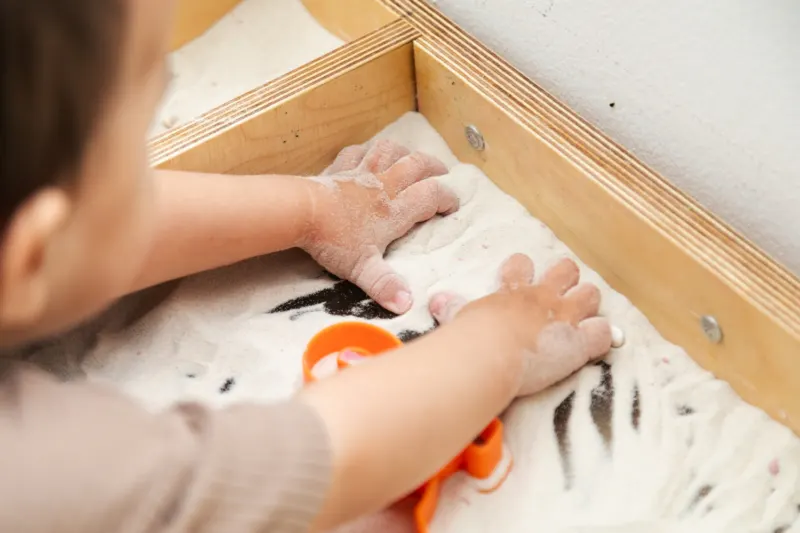
Incorporating Montessori Principles into Playroom Activities
Montessori playrooms are designed to promote independence, creativity, and problem-solving skills. Here are some tips for incorporating Montessori principles into playroom activities:
Encourage Self-Direction
Encourage children to choose their own activities and to work at their own pace. This will help children to develop a sense of responsibility and self-confidence.
Emphasize Practical Life Skills
Incorporate practical life skills into playroom activities, such as cooking, cleaning, and caring for oneself and others. This will help children to become independent, capable individuals who are prepared for the challenges of adult life.
Focus on Process, Not Product
Emphasize the process of learning, rather than the final product. Encourage children to explore and discover new things, rather than focusing on achieving a specific outcome.
Promote Collaboration
Encourage children to work together on activities and to help each other when needed. This will promote socialization and collaboration skills.
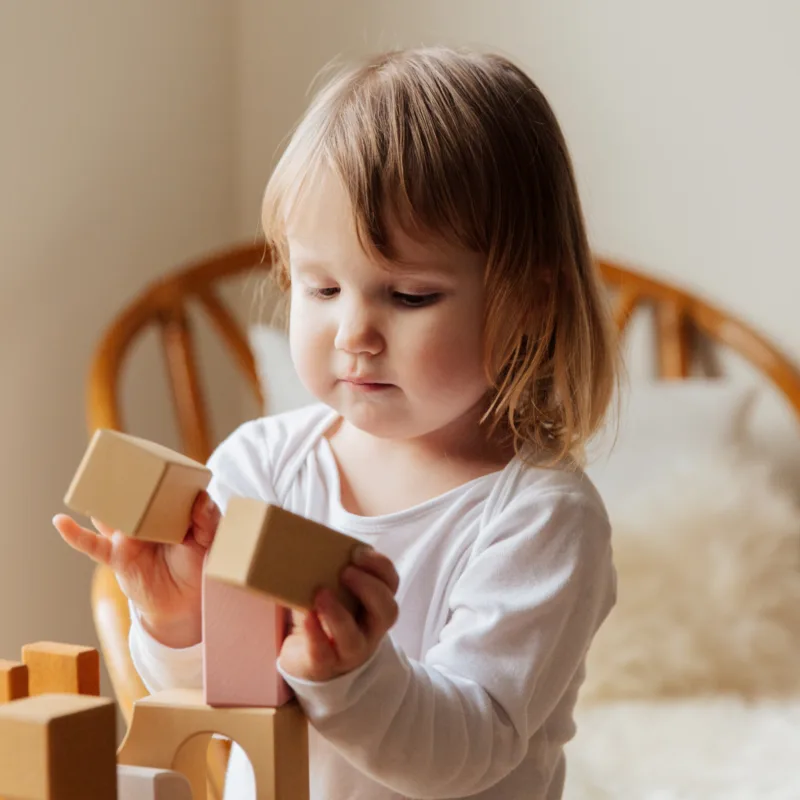
Creating a Calm and Organized Play Environment
Montessori playrooms are designed to be calm, organized spaces that promote concentration and focus. Here are some tips for creating a calm and organized play environment:
Minimize Distractions
Minimize distractions in the playroom, such as loud noises or bright colors. This will help children to concentrate and focus on their activities.
Use Natural Materials
Use natural materials in the playroom, such as wood, cotton, and wool. This will create a calming, soothing environment.
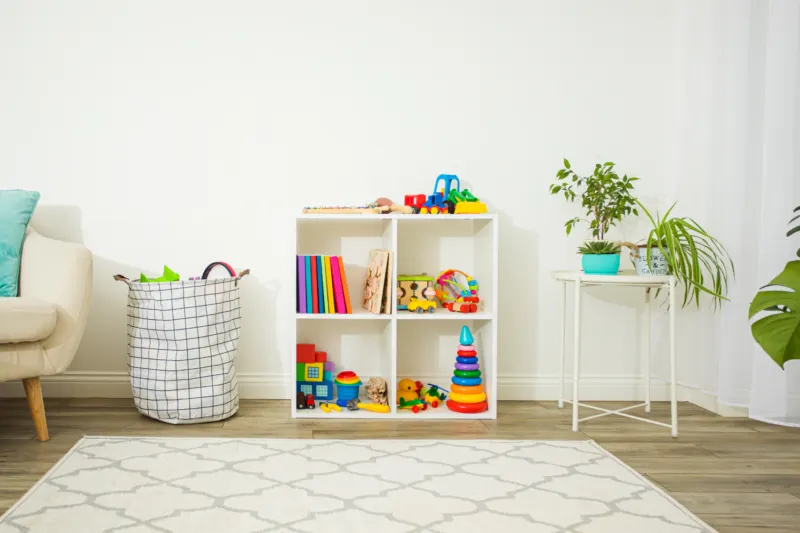
Keep the Playroom Organized
Keep the playroom organized and clutter-free. This will help children to find the materials they need and to work independently.
Create a Designated Space for Each Activity
Create a designated space for each activity, such as a puzzle corner or an art table. This will make it easier for children to find the materials they need and to work independently.
Encouraging Independent Learning & Growth
Encouraging independent learning and growth in a Montessori playroom requires patience, dedication, and a willingness to let children explore and discover on their own. Here are some tips for encouraging independent learning and growth:
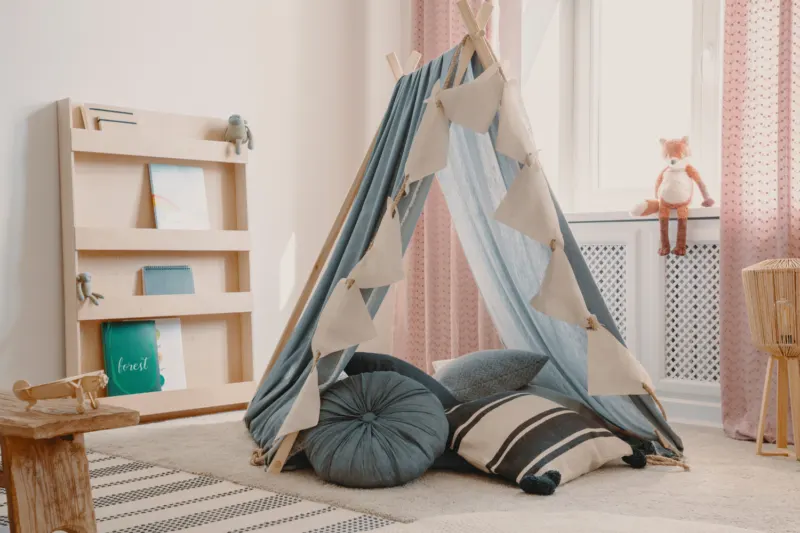
Provide a Safe, Supportive Environment
Provide a safe, supportive environment that encourages children to take risks and try new things. This will help children to develop a sense of confidence and independence.
Offer Age-Appropriate Challenges
Offer age-appropriate challenges that encourage children to stretch their skills and abilities. This will help children to develop problem-solving and critical thinking skills.
Allow for Mistakes
Allow children to make mistakes and to learn from them. This will help children to develop resilience and to learn from their experiences.
Celebrate Successes
Celebrate children's successes and accomplishments, no matter how small. This will help children to develop a sense of pride and confidence.
Montessori Playroom Ideas and Inspiration
Montessori playrooms can be designed in a wide range of styles and themes. Here are some Montessori playroom ideas and inspiration:
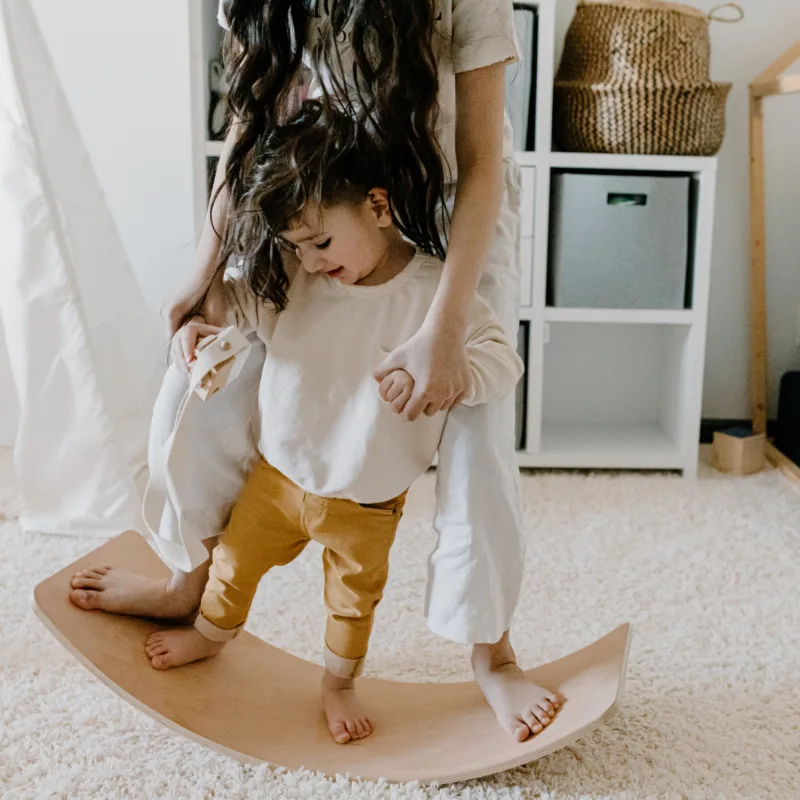
Nature-Inspired Playroom
Create a playroom that is inspired by nature, with materials such as wood, stone, and natural fibers. Include materials such as shells, rocks, and pinecones for sensory exploration.
Art-Focused Playroom
Create a playroom that is focused on art and creativity, with materials such as paints, markers, and clay. Include materials such as easels and art tables for independent exploration.
Science-Focused Playroom
Create a playroom that is focused on science and exploration, with materials such as microscopes, telescopes, and magnets. Include materials such as nature journals and field guides for independent exploration.
Embracing the Montessori Approach in Your Playroom
Montessori playrooms offer a wide range of benefits for children, promoting independence, creativity, problem-solving, and critical thinking skills.
By incorporating Montessori principles into your playroom design and activities, you can create a safe, supportive environment that encourages children to explore, discover, and learn on their own.
So why not embrace the Montessori approach in your playroom and watch your child grow and learn in new and exciting ways?
